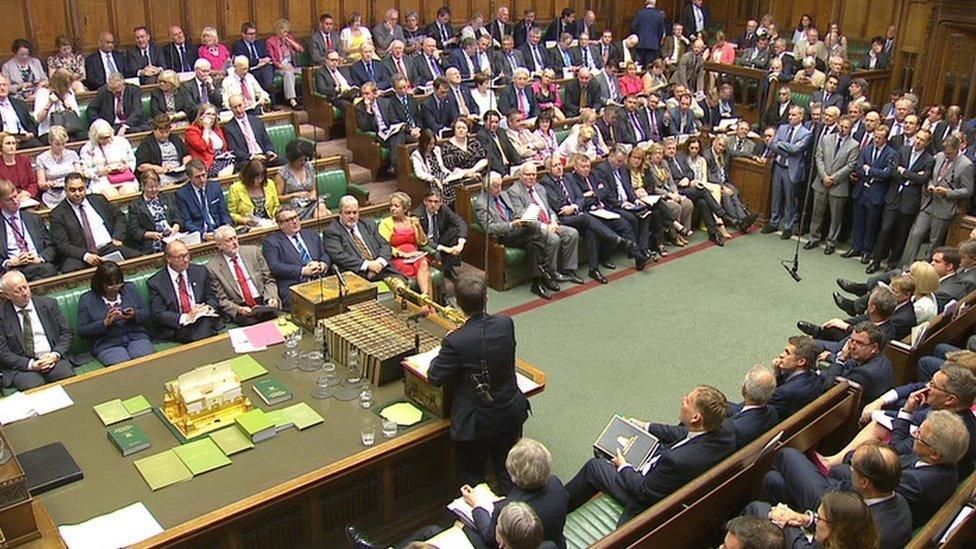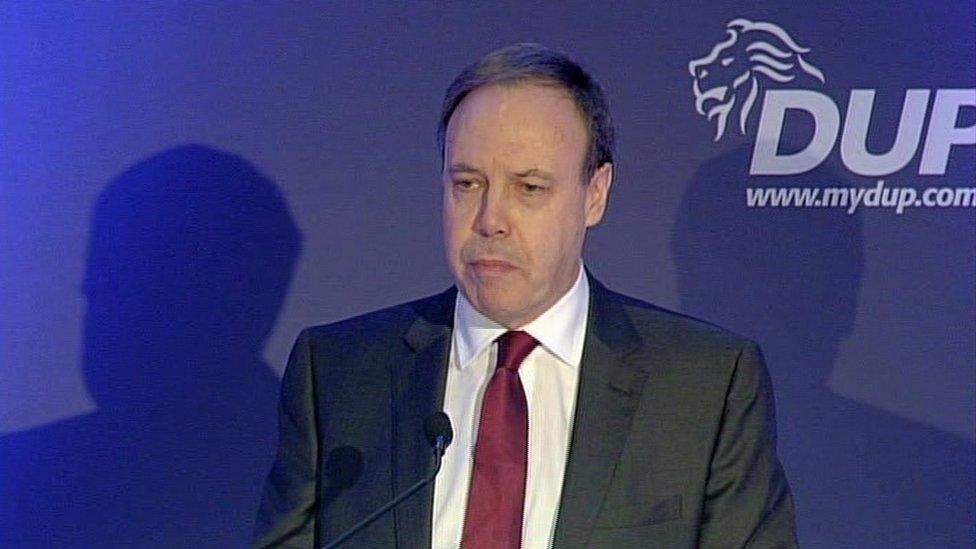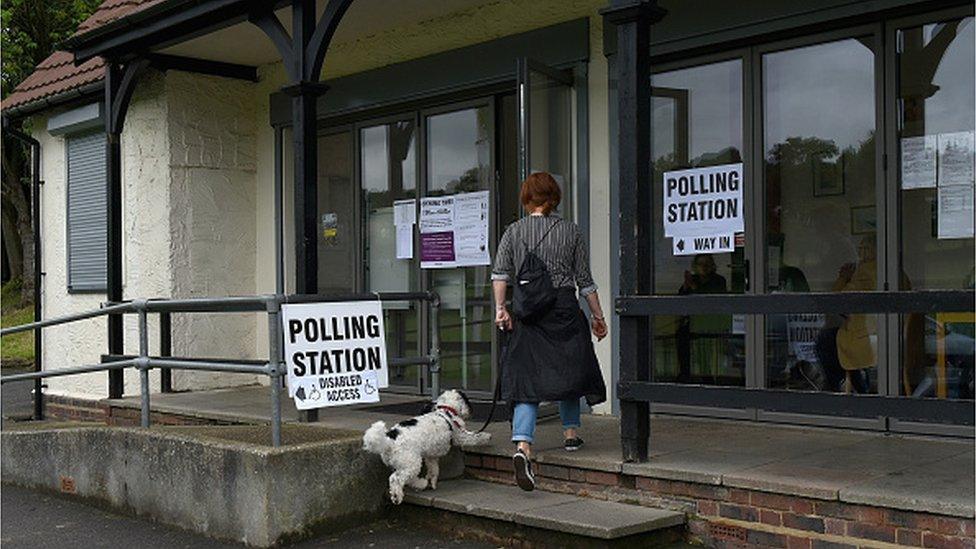MPs vote against move to cut 50 Westminster seats
- Published

The government wants to cut the number of MPs by 50 but has faced opposition, including from some Conservative MPs
A move to keep the number of MPs at 650 rather than reduce the number to 600 has been backed at Westminster.
A bill brought by the Labour MP Pat Glass was backed by 253 votes to 37, a majority of 216.
The government wants to cut the number of MPs by 50 and create constituencies roughly the same size.
The changes would see Northern Ireland lose one of its 18 MPs and Belfast's four Westminster seats would go down to three.
If the move goes ahead it could cause difficulties for well-known politicians including the Ulster Unionist Party MP, Tom Elliott, Alasdair McDonnell of the Social Democratic and Labour Party (SDLP) and the Democratic Unionist Party (DUP) deputy leader Nigel Dodds.

Well known seats could also disappear including Lagan Valley, West Tyrone and Mid-Ulster.
There would also be new names on the electoral map such as Dalriada, Glenshane, and West Down.
'Tory rebels'
Last month, the BBC Northern Ireland programme The View reported that a number of Tory MPS would vote against the planned reduction which could put the entire proposal in jeopardy.
Mr Dodds said the political parties at Westminster, bar the Conservatives, voted against the plans.
He said: "With rebels in their own ranks added in, the government needs to face reality and pull the plug now."
The North Belfast MP told the Commons that if the government proposals were passed, the majority of Northern Ireland seats will be "represented by abstentionists".

DUP deputy leader Nigel Dodds is among a number of MPs who could face difficulties if the cuts are introduced
Sinn Fein's four MPs abstain from taking their seats in the House of Commons.
It is thought that Labour will lose the most seats under the boundary changes intended to be introduced in time for a general election in 2020.
During the debate in Westminster Labour MP Pat Glass argued that plans to reduce the number of MPs would mean politicians would become more remote from their constituents.
Her Parliamentary Constituencies (Amendment) Bill aims to ensure constituencies:
are within 10% of the electoral quota
that the boundary commissions use more up-to-date data
that reviews take place every 10 years, rather than five.
She told MPs her bill was not motivated by self-interest as she intended to stand down from her constituency at the next general election.
She also expressed concerns about cutting the number of MPs while the number of peers in the House of Lords are increased regularly.
Conservative MP Wendy Morton spoke out against Ms Glass's bill, calling it "regressive".
Ms Morton said she was elected on a manifesto pledge to reduce the number of MPs and it would be "wrong" to ignore the views of the public.
The Cabinet Office minister Chris Skidmore said the government remain focussed on pushing through boundary changes.
He said: "The government remains committed to ensuring that we have a democracy that works for everyone, ensuring that every seat is of equal size, so that each person's vote is equal."
Ms Glass's bill will now progress to committee stage.
However, it is unlikely to become law without the government support.
- Published18 November 2016

- Published13 September 2016
